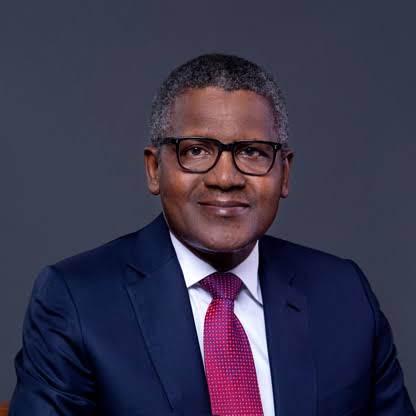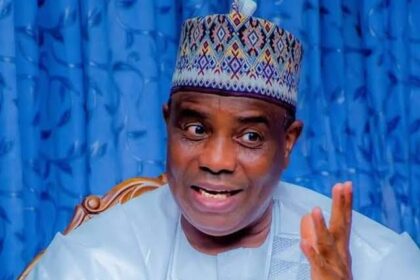Nigeria’s efforts to curb the naira’s depreciation have proven insufficient, with the central bank’s rate hikes and attempts to clear dollar backlogs failing to arrest the currency’s slide. The sustained weakness has inflicted billions of dollars in losses on the nation’s bilionaires.
Telecoms and oil billionaire Mike Adenuga has weathered the storm relatively well, shedding only $300 million, or less than 5 percent of his January 30th net worth. In contrast, Aliko Dangote, Africa’s richest man and Nigeria’s wealthiest individual, has seen his fortune plummet by $8.6 billion since Jan. 30, falling from $23.3 billion to $14.7 billion, according to the Bloomberg Billionaires Index.
Aliko Dangote’s early gains evaporate on naira weakness
Aliko Dangote’s wealth has now reversed early gains fueled by a strong performance in his publicly traded businesses. The decline is directly linked to the depreciation of the Nigerian naira.
While Dangote’s holdings in Dangote Cement, Dangote Sugar, Nascon Allied Industries, and United Bank for Africa saw initial gains in January, those have been erased due to the naira’s weakness. These assets, all denominated in naira, have lost value when converted to U.S. dollars.
The insufficient dollar supply in Nigeria continues to undermine the central bank’s efforts to bolster confidence in the currency. Consequently, Dangote’s year-to-date wealth loss has reached $354 million, pushing him down to the 139th richest person globally.
Despite this decline, Dangote’s most valuable privately held asset, Dangote Fertilizer, remains steady at a valuation of $5.15 billion. This, alongside Dangote Cement (currently valued at $6.7 billion), represents his two largest holdings.
Efforts to curb naira’s fall yet to bear fruit
While the Nigerian government has taken strict actions to stabilize the naira’s exchange rate, the only notable success has been the unification of foreign exchange rates across different boards. Additionally, the government raised energy prices from N68 ($0.045) to N225 ($0.15) per kilowatt-hour for 15 percent of mostly urban consumers, alongside higher gasoline prices. These measures, however, continue to fuel inflationary pressures.
Nigeria’s inflation rate climbed for the 16th consecutive month in April, driven by a threefold increase in electricity tariffs and higher transport costs. This acceleration raises the prospect of another interest-rate hike by the central bank’s monetary policy committee next week.
The committee has already lifted borrowing costs to a record high to curb price growth and boost the naira. The inflation rate climbed to 33.7 percent in April from 33.2 percent in March, according to the National Bureau of Statistics. This figure was lower than the median estimate of 34.2 percent from a Bloomberg survey of eight economists.
– Billionaires.Africa



